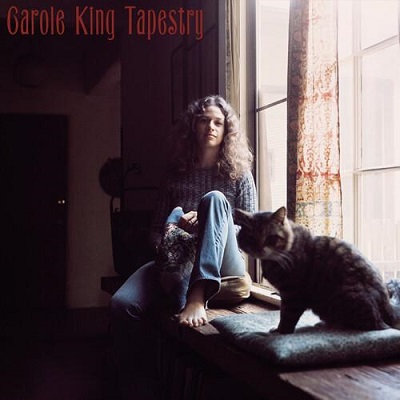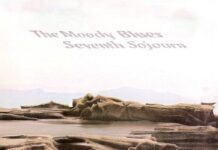The story has all the makings of a splendiferous fairy tale: Brill Building songwriter goes solo and her second record becomes one of the biggest selling albums of all time. After writing hits for the Shirelles, Little Eva, Aretha Franklin and the Monkees, the Brooklyn-bred Carole King aligned herself with the crop of singer-songwriters oozing out of the hippie havens of California and ostensibly became the Queen of Laurel Canyon. The former regular at Alan Freed’s original Rock n’ Roll shows and her 1971 album Tapestry would invariably alter the perception of the power behind a voice, piano and an indelible splash of sparse production.
Having little success with 1970’s Writer, her first solo album, King was encouraged by record label head/producer/manager Lou Adler and singer/songwriter/friend James Taylor to record a more personal, introspective album. She put some demos together, featuring new compositions alongside songs she had written for other artists, and presented them to Adler. The spirit of the demos served as a template for Adler when he and King went into the studio to make the record. From the opening notes of the rollicking “I Feel The Earth Move” right on through to the final murmur of “(You Make Me Feel Like) A Natural Woman,” Tapestry effectively captures King at her creative peak.
For a record with little fanfare or flash to become such a commercial monster is where timing and mood come in. The excesses of the psychedelic movement ushered in a new era for the stripped-down singer-songwriter. Taylor (who sings and plays guitar on much of Tapestry also hit the top of the charts with his own version of King’s “You’ve Got A Friend”), Joni Mitchell (who sang background vocals on the remake of “Will You Love Me Tomorrow”), and a slew of others, mellowed out in the early 70s and made some of the most enduring music of their careers. But it took a seasoned New York-based songwriter like King to step in and take the lead. And the accolades were unprecedented.
To begin, Tapestry and “It’s Too Late,” the album’s first single, hit Number One simultaneously. The single nestled at the top for five weeks, while the album assumed a more permanent residence for a then unheard-of 15 weeks. It would remain on the Billboard charts for 302 weeks, and has go on to sell more than 20 million copies. In 1972, King maintained her winning streak and swept the Grammys in four major categories: Song of the Year for “You’ve Got a Friend”; Record of the Year for “It’s Too Late”; Best Pop Vocal Performance – Female; and Album of the Year. The impact of Tapestry continues to reverberate today — ranking number 36 in Rolling Stone magazine’s 2003 list of the 500 greatest albums of all time; placing 39th as the greatest album ever according to VH1; and chosen by the Library of Congress as one of 50 recordings added to the National Recording Registry. Fifty years later, it’s important to remember why Tapestry and its brand of pure goodness should be cherished and revered for years to come.
~ Shawn Perry




















